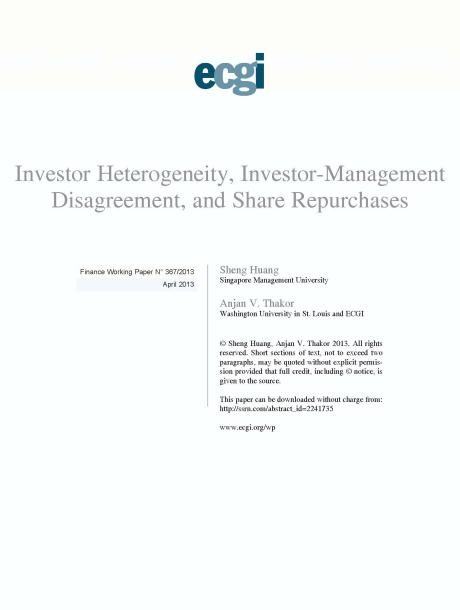
Investor Heterogeneity, Investor-Management Disagreement, and Share Repurchases
Abstract
This paper develops and tests a new theoretical explanation for why a firm conducts open-market and privately-negotiated stock repurchases. Investors may disagree with the manager about the firm?s investment projects. A repurchase causes a change in the investor base as investors who are more likely to disagree with the manager tender their shares. This model leads to the following predictions. First, a firm is more likely to buy back shares when the level of investor-management agreement is lower. Second, the level of agreement improves following a repurchase. Third, once the stock price and investor-management agreement are controlled for, dispersion of opinion among investors cannot explain repurchase activity. Our empirical tests provide strong support for these predictions. The results are robust to controls for information asymmetry and other factors that may drive a firm?s share repurchase decision. Overall, the evidence is consistent with firms strategically using repurchases to improve alignment between management and shareholders.










